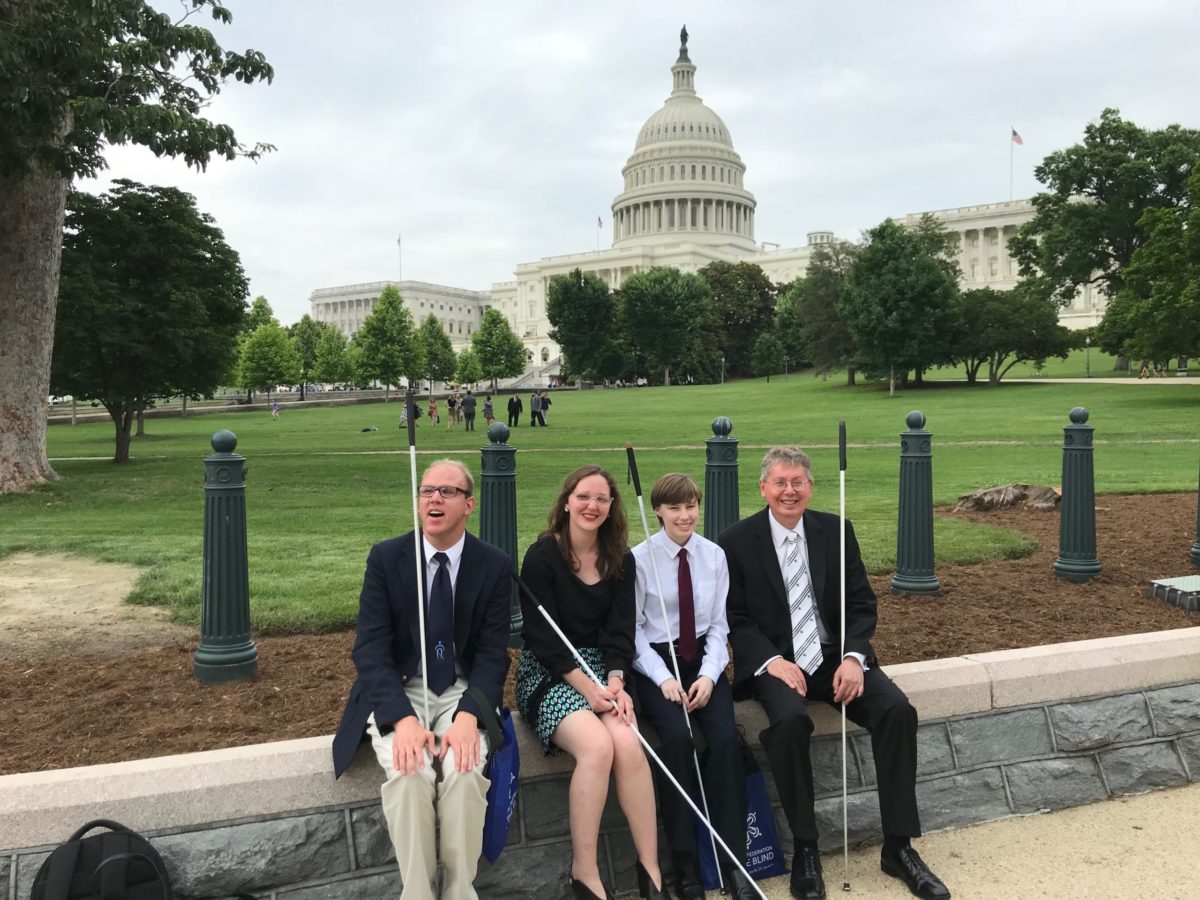Each year, hundreds of people with white canes and guide dogs descend on the U.S. Capitol for what is known as Washington Seminar. Since 1973, the National Federation of the Blind (NFB) has led its members to face to face meetings with their respective congressmen, where they present the group’s legislative priorities of the year.
The NFB president determines the priorities that would most affect its more than 50,000 members nationwide. In pre-pandemic days, meetings were crunched within a two- or three-day period in January or February. With this year’s virtual platform, meetings extended throughout the month of February. The Pennsylvania affiliate is also meeting with Congresswoman Mary Gay Scanlon this month.
“In some ways we had a lot more flexibility this year,” said Emily Gindlesperger, the legislative director for the NFB of Pennsylvania. Gindlesperger has coordinated the Pennsylvania meetings for the past 10 years.
As the mother of a blind teenager and visually impaired herself, getting in front of lawmakers is a personal labor of love for Gindlesperger. Angelina, her 15-year-old daughter, has also been an active participant since she was about 10 years old.
The NFB’s 2021 priorities are:
- The Access Technology Affordability Act. First introduced last year, this act would provide a refundable $2,000 tax credit to be used within a three-year period. This bill would help offset the high costs for assistive software and devices which are not typically covered by insurance.
- The Medical Devices Nonvisual Accessibility Act seeks a uniform accessibility standard for home medical devices. The initiative requests that the Food and Drug Administration lead the charge, collaborating with manufacturers and people with disabilities.
- The 21st Century Mobile Apps and Website Accessibility Act would strengthen current federal accessibility guidelines. It would also empower the Department of Justice to investigate complaints.
- The Americans With Disabilities Voting Rights Act addresses all inaccessible aspects of the voting process. Among other recommendations, the Act would require accessible machines for in-person voting. It also recommends electronic voting registration and balloting. (Last year, the NFB of Pennsylvania’s sued the Department of State and won its demand for an accessible mail-in ballot. However, the Department has only committed to one year of providing this special ballot.)
The group aims to secure sponsorship from the chair of the committee overseeing the act. From there, NFB members push for as many cosponsors as possible. The more cosponsors an act receives, the easier it moves out of committee and to the full house.
With the backdrop of the Jan. 6 raid on the Capitol, the impeachment trial and a pandemic that put staff in a myriad of remote locations, the Pennsylvania team secured meetings with the offices of 16 of the 18 Pennsylvania representatives. They also met with aides from both Senators Pat Toomey and Bob Casey.
Efforts are already paying off. The Access Technology Act has been assigned a bill number in the House, while a Senate version was introduced during the seminar.
Congressman Dwight Evans’ office has met with NFB members for several years. He confirmed he will co-sponsor the Access Technology Affordability Act.
“I’m pleased to continue working with NFB Philadelphia members,” Evans said. “It’s important to me to hear about their needs and priorities.”
Esther Gillyard is new to the NFB and attended her first seminar. She lost her sight in 2015 while a student at Temple University. Now a mother, she shared her experience of having to withdraw from school due to the lack of accommodations, and the challenges of being a blind parent.
Gillyard hopes her story dispels any generalizations about the blind community.
“I think it’s really important that they hear other perspectives,” she said. “That’s the only way things will get addressed.”
The scheduling process is hectic and changes at a moment’s notice, but Gindlesperger believes it is well worth the time.
“If they don’t hear it from us, they won’t hear our passion and our needs,” she said. “There’s no one else better to tell our story but us.”
Join the conversation!
Find news, events, jobs and people who share your interests on Technical.ly's open community Slack

Philly daily roundup: East Market coworking; Temple's $2.5M engineering donation; WITS spring summit

Philly daily roundup: Jason Bannon leaves Ben Franklin; $26M for narcolepsy treatment; Philly Tech Calendar turns one

Philly daily roundup: Closed hospital into tech hub; Pew State of the City; PHL Open for Business


